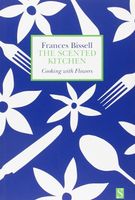Advertisement
Fennel Flowers and Borage
Appears in
Published 2012

- ‘The fennel with its yellow flowers
- In an earlier age than ours,
- Was gifted with the wondrous powers,
- Lost vision to restore.’
Henry Longfellow ,- Goblet of Life
I love the versatility of fennel’s flowers, seeds and feathery leaves, all of which have a powerful scent that never fails to remind me of the Mediterranean. The plant was naturalised in Britain many centuries ago, probably under the Romans, and is found in profusion almost everywhere it grows. Indeed, the Elizabethan writer John Gerard noted that, ‘It is so well knowne amongst us, that it were but lost labour to describe the same.’ For generations it has been used as a herbal remedy, especially as an aid to eyesight, as Longfellow suggests. Fennel seeds form part of the fragrant mixture taken at the end of a meal in India, which both freshens the breath and, one assumes, helps the digestion, while fennel tea makes a delicious end to a meal, especially at night in place of coffee.

